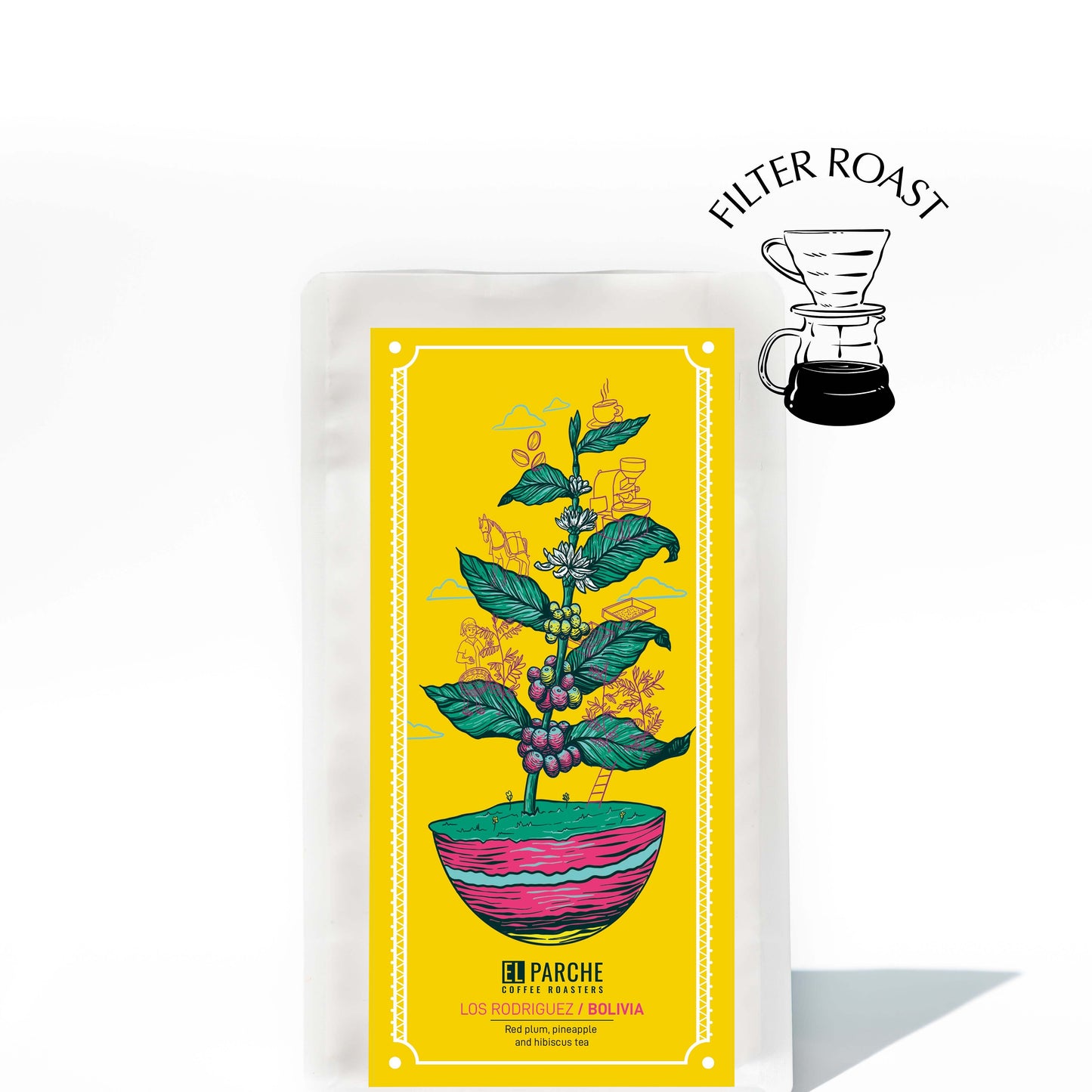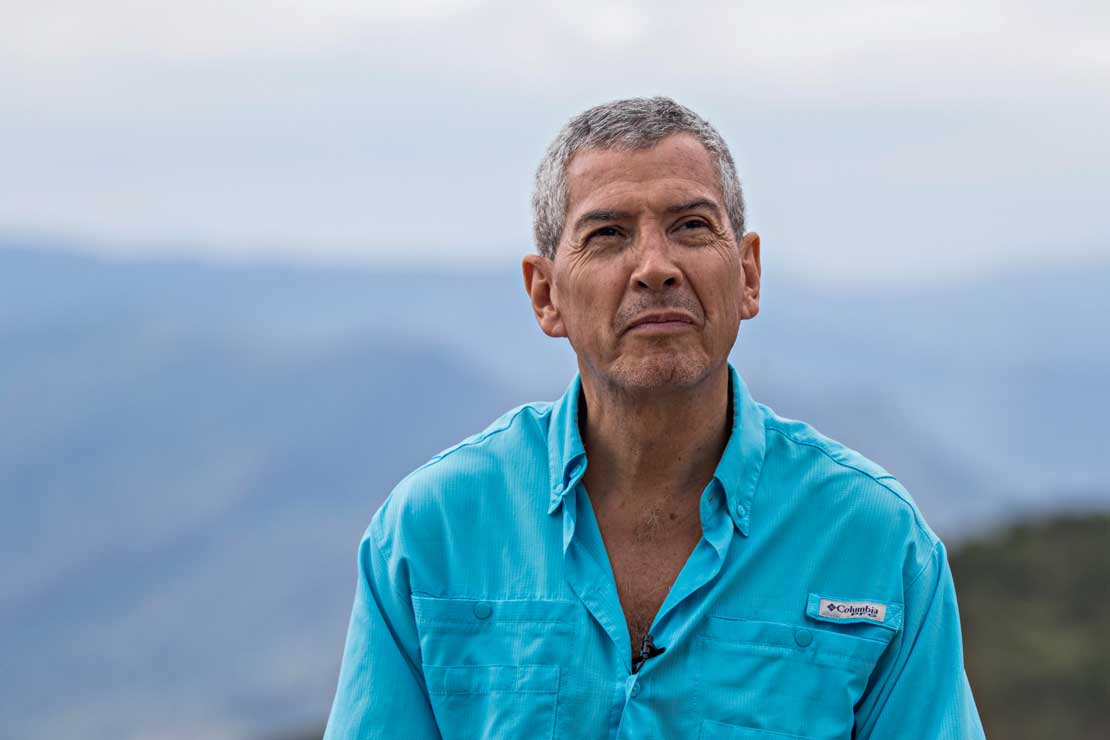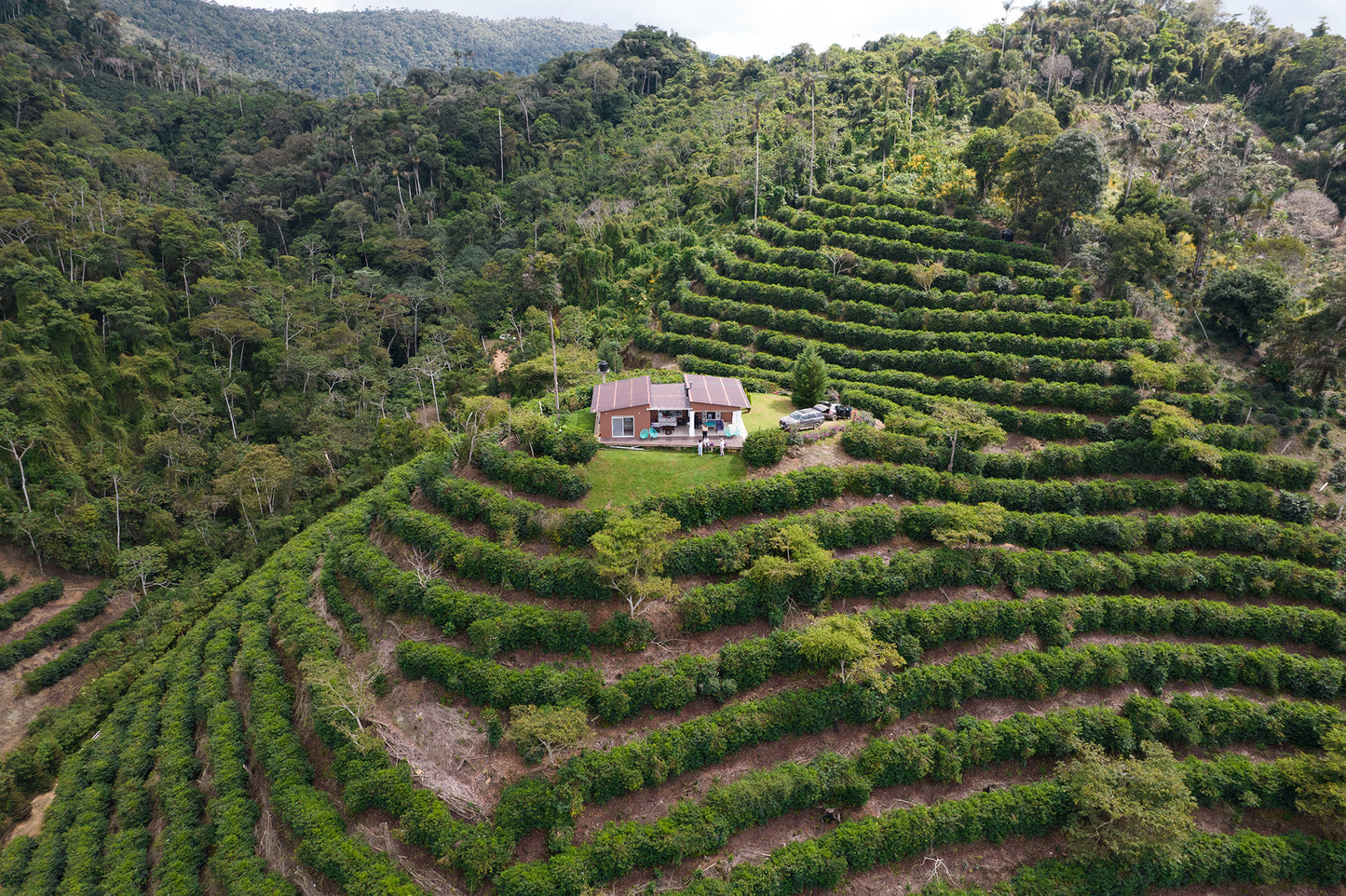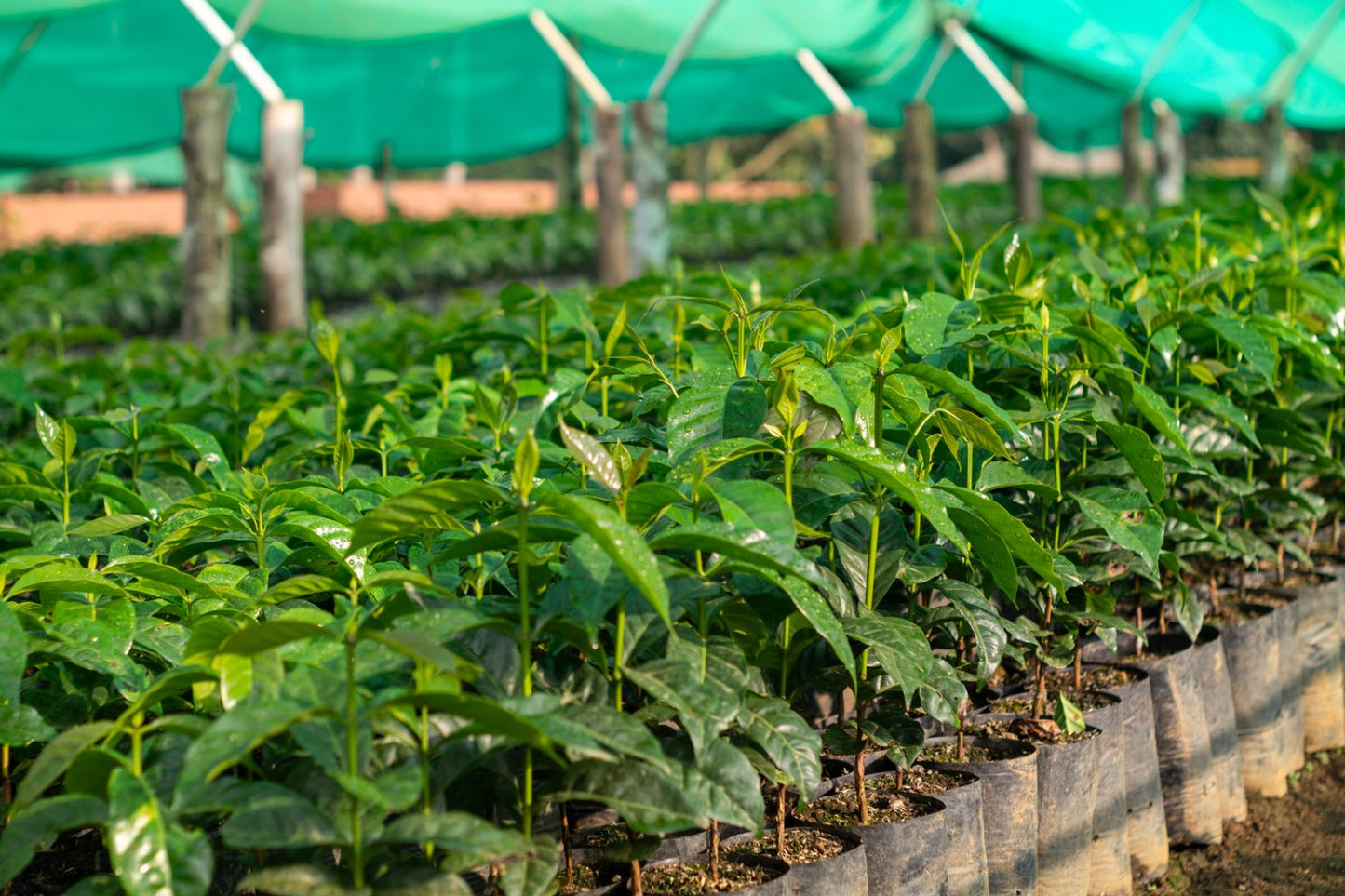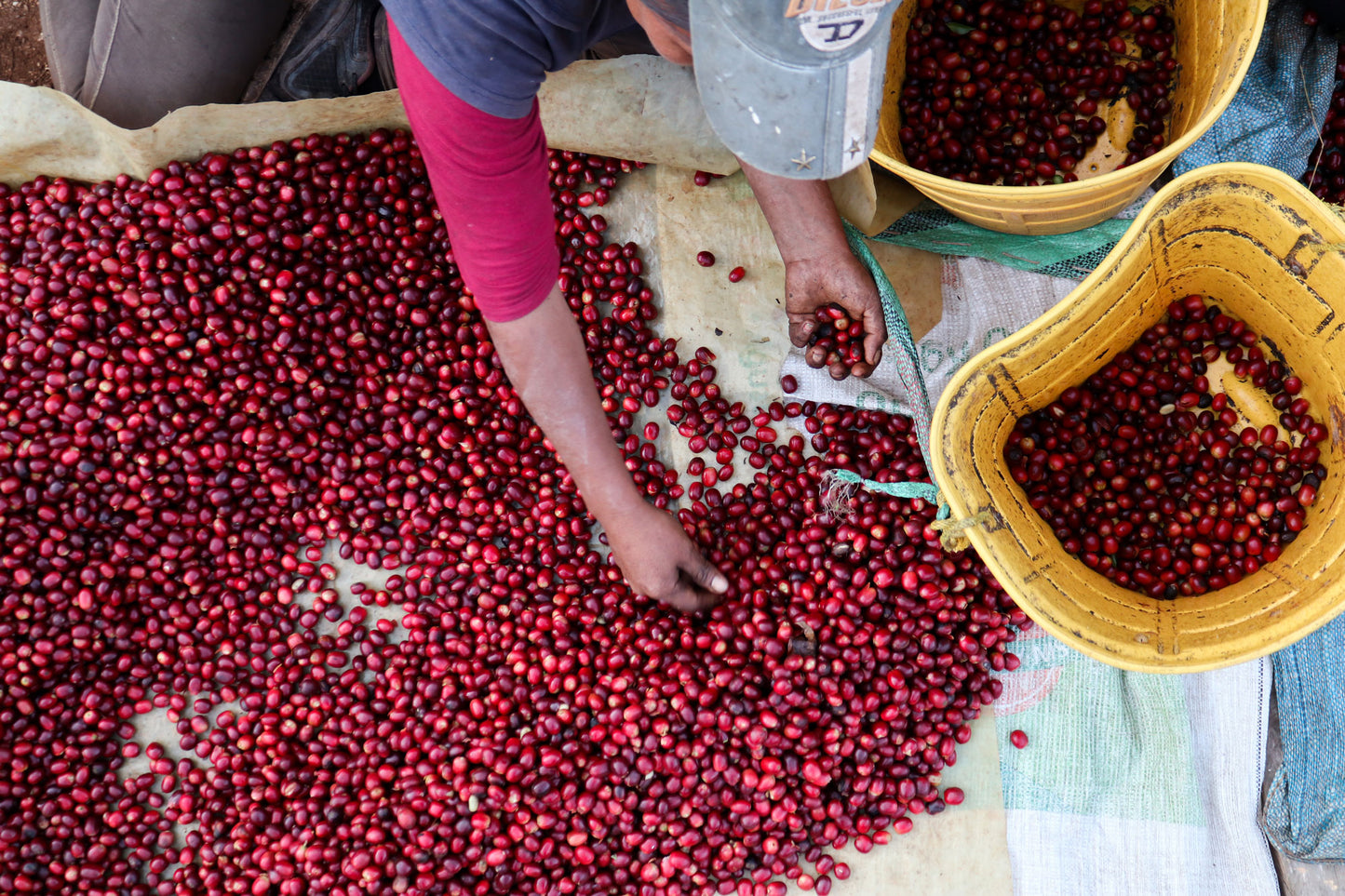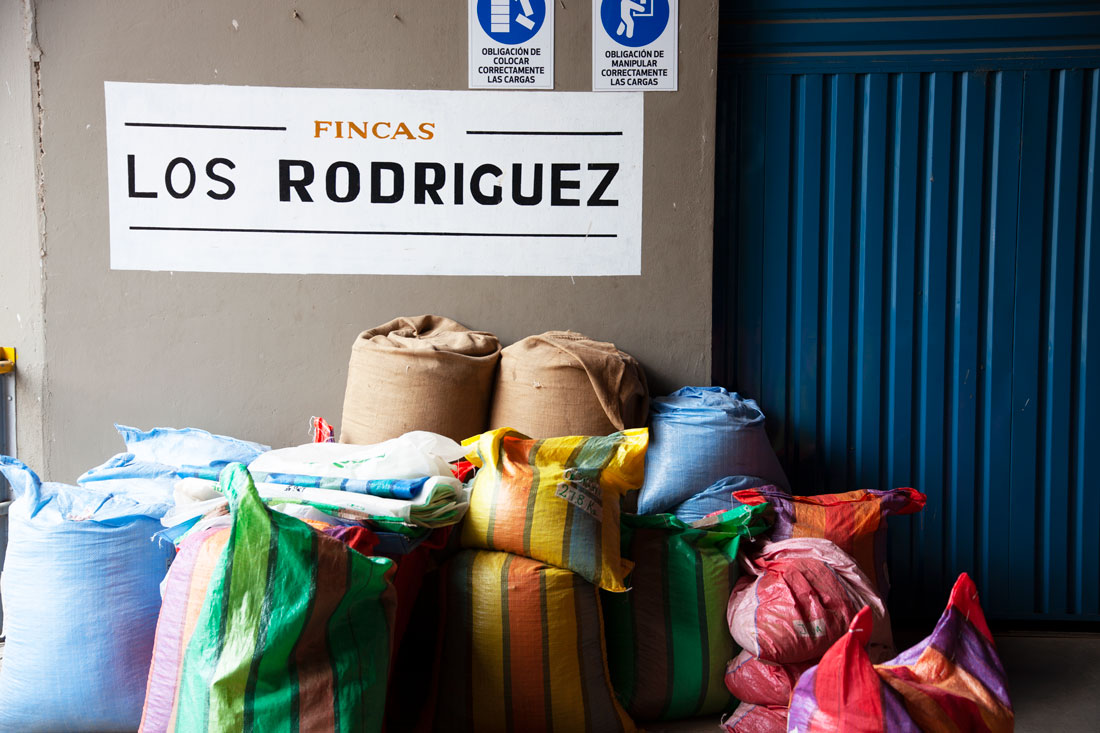El Parche
Los Rodriguez - Single Origin - BOLIVIA
Los Rodriguez - Single Origin - BOLIVIA
Couldn't load pickup availability
Red plum, pineapple and hibiscus tea
Variety: Caturra
Process: Washed Anaerobic 48 hr fermented - Medium Filter Roast
Suggested methods: Pour over, Aeropress, Cold Brew and Plunger
The Rodríguez Family – Agricafe & Fincas Los Rodríguez
In 1986, Pedro Rodríguez traded his suit and career in accounting for his true passion—agriculture. Recognising Bolivia’s untapped potential for coffee, he founded Agricafe, a visionary business built on sustainability, innovation, and long-term partnerships with producers. Over three decades later, Agricafe has grown into one of Bolivia’s most influential specialty coffee enterprises, led by Pedro together with his children, Pedro Pablo and Daniela, who share his drive and commitment.
Today, under the banner of Fincas Los Rodríguez, the family owns 12 farms across Caranavi and Samaipata, cultivating around 130 hectares of coffee. Alongside their own production, Agricafe represents and supports more than 200 smallholder farmers through their Sol de la Mañana program, which empowers producers with training, resources, and transparent rewards for quality.
When we first began working with the Rodríguez family in 2010, their focus was on sourcing and processing coffees from smallholders in Caranavi at their Buena Vista wet mill. Even then, their dedication to traceability and producer support stood out—ensuring farmers received recognition and higher prices whenever their coffees excelled. This trust-based relationship encouraged growers to continually reinvest in their farms and quality.
By 2012, as leaf rust devastated crops across Bolivia, Pedro and his family took decisive action, establishing their own farms to safeguard the future of Bolivian coffee. Their first farm, Finca La Linda, became the birthplace of a new vision: modern, meticulously managed plantations that could inspire and sustain specialty production.
The Rodríguez family’s approach blends science and innovation with a deep respect for tradition. They consult world-leading agronomists, experiment with varieties and farming techniques, and document everything with precision to push Bolivian coffee forward. Their farms are renowned for their organisation and vitality—rows of healthy trees, carefully separated by variety, producing exceptional yields and cup quality.
What began with one farm in Caranavi has blossomed into a pioneering coffee legacy, spanning regions and generations. Through Agricafe, Fincas Los Rodríguez, and their partnerships with smallholders, the Rodríguez family continues to shape the future of Bolivian specialty coffee with vision, dedication, and heart.
HOW THIS COFFEE WAS PROCESSED
At Las Alasitas, Pedro hires pickers from the Villa Rosario community to carefully hand select the coffee during the harvest. These pickers are trained to collect only the very ripest cherries, and multiple passes are made through the farm throughout the harvest to ensure the coffee is picked at its prime. Selective picking is extremely important for special micro-lots like this one, to ensure the sweetest cup. The Rodríguez family has found that harvesting the very ripest (almost purple) cherries result in the most complexity and distinction in the coffee.
After inspected and weighed, the cherries for this lot were carefully sorted by weight using water, and floaters were removed. Following this, the coffee was placed on a conveyor belt and was disinfected, in a similar process used for wine grapes. Once depulped, the wet parchment was fermented in the family’s brand new, custom-built stainless steel tanks (show in the video below) for 48 hours. The team made sure the lid remained shut for the full period of fermentation, to ensure no oxygen touched the coffee and that the punch-like, boozy aroma remained trapped inside.
The parchment was then was washed with fresh, clean water and carefully machine-dried for 105 hours using a ‘guardiola,’ a horizontal, rotating drum that gets rid of moisture by creating a warm, consistent flow of air around the coffee. Once the coffee was dry, it was transported to La Paz where it was rested before being milled at Agricafe’s dry mill, La Luna. At this state-of-the-art mill, the coffee was first hulled and sorted using machinery, and then by a team of workers who meticulously sorted the coffee again (this time by hand) under UV and natural light.
WHATS IN A NAME?
Alasitas means “Buy Me” in the local Aymara native language. The name comes from a festival called Alasitas, which is a festival of desires and honours the Andean god of abundance.
ORIGIN: Bolivia
REGION: Caranavi
VARIETY: Caturra
PROCESS: Washed Anaerobic
ALTITUDE: 1,650 MASL
SUGGESTED METHODS: Plunger, Pour over, Aeropress and Cold Brew
